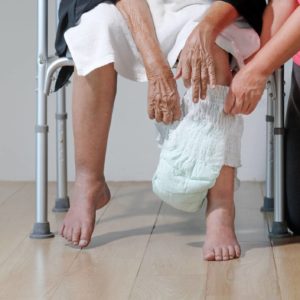Depression is a debilitating mood disorder that affects how a person thinks, feels, and functions in daily activities. If left untreated, depression can interfere with the patient’s ability to study, work, interact with other people and enjoy life. In order to avoid this situation, an individual need to use a daily mood app. The mood tracking app will let an individual analyse and track emotions.
Depression’s adverse effect varies from one patient to another; however, there are some signs and symptoms common to all patients suffering from it. In this piece, we have listed some signs and symptoms of depression. If you or someone you know is suffering from these symptoms, it is important to immediately look for an anxiety depression therapist.
Loss of Interest to the Things You Normally Liked to Do
A person suffering from depression has the tendency to lose interest in hobbies, friends, work, or even food, he/she usually enjoys. This symptom is called anhedonia, which is one of the main symptoms of a major depressive disorder. A person that suffers from depression is likely to experience social withdrawal, less verbal and nonverbal expressions and negative feelings toward oneself and/or others.

Thoughts of Death, Suicide, or Self-harm
Having suicidal thoughts in passing can be normal especially when in the middle of a crisis or when battling a huge problem. However, when these thoughts become recurring and they never go away, it might be a sign that you have to ask for professional help as you might be suffering from depression.
Active suicidal thoughts are alarming as they carry a higher risk. if you or someone you love is constantly battling with these types of thoughts, it is imperative to not just brush them off or wish them to go away on their own. It is vital that someone expert in this field, such as Brain Wellness Spa, look after you or someone you love you suspect to have been suffering from depression so they can provide you with the necessary professional advice to take in order to alleviate the associative thoughts that comes with depression.
Inability to Concentrate
When a person is depressed, many parts of the human brain become damaged, such as the amygdala and hippocampus. When our hippocampus shrinks, our ability to stay alert and focus likewise decreases which significantly affects our attention span.
This manifests when a person fails to perform properly at work or at school, adversely affecting his/her work performance and productivity. A person who is depressed is more inclined to commit mistakes as their brain is cluttered with other thoughts.

Feelings of Worthlessness and Guilt
A person who is depressed tends to ruminate on negative thoughts about himself/herself in a very unrealistic way. The mind of a depressed person is usually preoccupied with his/her past adversaries, failures or mistakes, whether they are simple or complex. A person suffering from depression tend to feel inadequate all the time.
Normally, a person that suffers from depression has this simple sense of worthlessness or guilt that his/her existence is of little value or that feeling that he/she is responsible for another person’s reaction or behaviour. He/she usually creates an unrealistic evaluation of his/her worth based on past mistakes or failures.
Changes in Appetite, Hygiene and Sleeping Habits
Many people who suffer from depression lose both their energy and interest in activities they commonly enjoy and needs, including eating, sleeping and even maintaining proper hygiene. This is especially common for older people battling with depression who lose interest in preparing meals which manifest in weight loss. Some people with depression, on the other hand, tend to eat more than usual which results in a sudden increase in weight and inability to follow the normal day-to-day routine as they are feeling more tired and restless every day.
Some people may have the difficulty to sleep at night while others tend to get more hours of sleep than the recommended number of hours required. Many people with depression, too, tend to forget to take care of themselves, which include maintaining proper hygiene daily.




